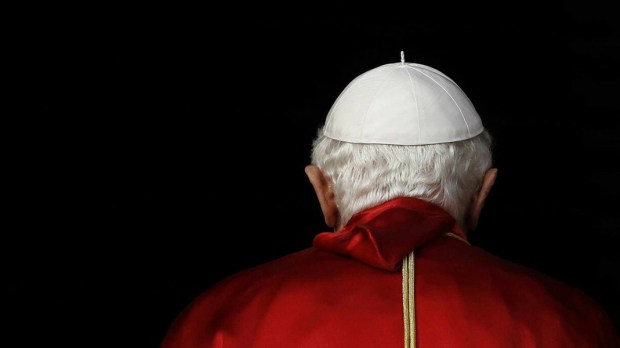Thursday 27 January 2022
1 – Will ‘zero tolerance’ eventually cause more problems than solutions?
2 – Apps that reserve the right to sell your prayers
3 – Mexican cardinals found guilty of trying to influence federal elections
4 – The role of catechists for the Church in Africa
5 – In Gaza, a church dating from the 5th century AD is unveiled to the public
1Will ‘zero tolerance’ eventually cause more problems than solutions?
In his blog Monday, Vatican Italian journalist Andrea Gagliarducci reflects on whether the position of “zero tolerance” when it comes to abuse in the Church makes it too easy to wrongly accuse someone. He wonders if this may turn against Pope Francis one day. Gagliarducci takes issue with the reports investigating abuse commissioned by external bodies, such as the Munich report, which includes Pope Emeritus Benedict XVI. The journalist comments that these reports risk “turning into the opposite of what they are meant for.”
“More than truth operations, they become marketing operations, with the bishops busy apologizing and expressing shame to gain credit in public opinion,” Gagliarducci explains. He states that while there is “no doubt” that abuse in the Church should be properly investigated and condemned, these reports are not judicial truth, and do not necessarily have a solid methodology.
Monday Vatican, English
2Apps that reserve the right to sell your prayers
Buzzfeed News investigated how prayer apps, which have been drawing big investments in the last years, sell users’ data. They inquired especially into the company Pray.com and discovered they sell data about the content that users consume on their app to several companies, including Facebook. This means, for example, that users can then be targeted with ads on Facebook based on the content they engage with on Pray.com.
Pray.com denied they “share users’ public, private, or anonymous prayers and specific content consumption” with third parties. “Silicon Valley investors have seized on them as an opportunity to commercialize a set of conversations that have historically been among the most private: those with God,” the reporter, Emily Baker-White, writes.
Buzzfeed News, English
3Mexican cardinals found guilty of trying to influence federal elections
Cardinals Carlos Aguiar Retes, archbishop of Mexico City, and Juan Sandoval Iñiguez, archbishop emeritus of Guadalajara, were both convicted of proselytizing by the Superior Chamber of the Judicial Electoral Tribunal of the Federation (TEPJF) of Mexico. They were accused of having “pressured and/or induced” their religious community to vote for a particular candidate or party in the legislative elections last June.
The Mexican Episcopal Conference (CEM) was quick to protest the verdict. In a statement, it said that none of the defendants had spoken specifically for or against a candidate, but that “in exercising their freedom of expression – they made personal pronouncements on the social reality of the country.” According to Crux, they were charged after encouraging Catholics to vote in defense of life, the family, and the common good: a position that, for the prosecution, transgresses the principle of separation of church and state recognized by the Mexican constitution.
Crux, English
The role of catechists for the Church in Africa
“We will never stop praising the work of catechists in Africa,” writes Father Basil Soyoye, a Nigerian from the Society for African Missions (SMA), who launched the project ‘Memory of Catholic Africa’ in Benin in 2021.
Father Soyoye explains that the first missionaries that came to Africa did not speak the local languages so catechists acted as mediators for them. “If evangelization has been successful in West Africa, it is because there were dedicated catechists there,” he stated. Father Soyoye’s project focuses on collecting and preserving in digital format the memories of African Catholics through written or video interviews. This means collecting testimonies from catechists, clergy members, missionaries and others who have seen the Church in Africa flourish in the last 50 years.
Fides, English
In Gaza, a church dating from 5th century AD is unveiled to the public
Discovered 25 years ago, the ancient church of Jabaliya, located four kilometers north of Gaza City in El-Mukheitim, has just been opened to the public, reports Terre Sainte Magazine. After three years of restoration works, carried out by the French NGO Première Urgence Internationale and the French Biblical and Archeological School, the site was finally opened with a ceremony to mark the occasion on January 24, 2022. The restoration was financed by the British Council’s Cultural Protection Fund at a cost of $250,000. It is the only site, along with the St. Hilarion Monastery, that is open to the public in the Palestinian enclave.
Built in the typical style of basilicas from the Byzantine era, the church was connected to a baptistery and a chapel and all three were paved with 400 m2 (around 4,305 square feet) of magnificent marble and ceramic mosaic. By walking on elevated wooden walkways, visitors can now admire the drawings of hunting scenes or fruit trees.
Terre Sainte, French.

